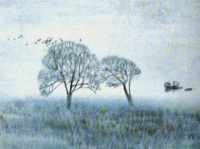- 第
- I
- [II]
- [III]
- [IV]
- [V]
- [VI]
- ... [VII]
- ... [XIII]
- ... [IXX]
- ... [XXV]
- ... [XXXI]
- ... [XXXVII]
- ... [XLIII]
- ... [IL]
- ... [LV]
- ... [LXI]
- ... [LXVII]
- ... [LXXIII]
- ... [LXXIX]
- ... [LXXXV]
- ... [XCI]
- ... [XCVII]
- ... [CIII]
- ... [CIX]
- 页
忆江南 recall south of the Changjiang River
长相思 long lovesickness
琵琶行并序 The Song of a Guitar
长恨歌 A Song of Unending Sorrow
立秋日曲江忆元九 The beginning of autumn (13th solar term) Yi Yuan nine days Qujiang
三月三十日题慈恩寺 Mar Thirty Japanese title Jionji
和武相公感韦令公旧池孔雀 And a sense of Wei Wu xianggongzhuang make public the old pool peafowl
禁中九日对菊花酒忆元九 Ban in The ninth day of the ninth noon, a festival on the lunar calendar right Chrysanthemum drink by the company of prosititutes Yi Yuan 9
浦中夜泊 Pu in the Night
七夕 the seventh evening of the seventh moon(when according to legend the Cowherd and the Weaver Maid meet in Heaven)
惜牡丹花 pity, regret, rue, begrudge peony
夜雪 Night Snow
与薛涛 AND Xue Tao
招东邻 attract East
直中书省 Directly in the book Province
杜陵叟 Empress Du Marceau
红线毯 red cotton blanket
缭绫 Aya wind
卖炭翁 Mai Tanweng
上阳白发人 ascending Yang pai Fat people
盐商妇 Salt women
大林寺桃花 Dalin temple on lushan mountain Peach blossom
后宫词 A Song of the Palace
暮江吟 Mo Jiang Yin
| 多首一页 |
望月有感
——自河南经乱,关内阻饥,兄弟离散,各在一处.因望月有感,聊书所怀,寄上浮梁大兄,于潜七兄,乌江十五兄,兼示符离及下邽弟妹
To my Brothers and Sisters Adrift in Troubled Times this Poem of the Moon
白居易
时难年荒世业空,弟兄羁旅各西东。
田园寥落干戈后,骨肉流离道路中。
吊影分为千里雁,辞根散作九秋蓬。
共看明月应垂泪,一夜乡心五处同。
田园寥落干戈后,骨肉流离道路中。
吊影分为千里雁,辞根散作九秋蓬。
共看明月应垂泪,一夜乡心五处同。
译者: Witter Bynner
【白话文】 时势艰难兵荒马乱,家业空空;兄弟逃难旅居异地,各自西东。
战乱以后处处寥落,田园荒芜;骨肉分离漂泊流浪,失散途中。
离群孤雁相隔千里,形影相吊;同根兄弟随风飞散,恰似秋蓬。
天涯海角共看明月,无不垂泪;今夜思乡你我同心,五地相同。
【注释】 1、世业:世代传下的产业。
2、羁旅:犹漂泊。
3、寥落:冷落。
4、干戈:本是两种武器,这里指战争。
5、根:喻兄弟。
【赏析】 这是一首抒情诗,约作于唐德宗贞元十六年(800)秋天。其时诗人到符离(安徽宿县),曾有《乱后过流沟寺》诗,流沟寺即在符离。题中所言"弟妹",可能和诗人自己均在符离,因此合起来就有五处。贞元十五年(799)春,宣武节度使董晋死后部下叛乱,接着中、光、蔡等州节度使吴少诚又叛乱。唐朝廷分遣十六道兵马去攻打,战事发生在河南境内。当时南方漕运,主要经过河南输送关内。由于"河南经乱"使得"关内阻饥"。全诗意在写经乱之后,怀念诸位兄弟姊妹。诗以白描手法,采用平易的家常话语,抒写人们所共有而又不是每个人俱能道出的真实情感。言辞清丽,不加雕饰,句句扣紧主题,意蕴精深,情韵动人。
【北美枫文集】唐诗300首月亮雁
